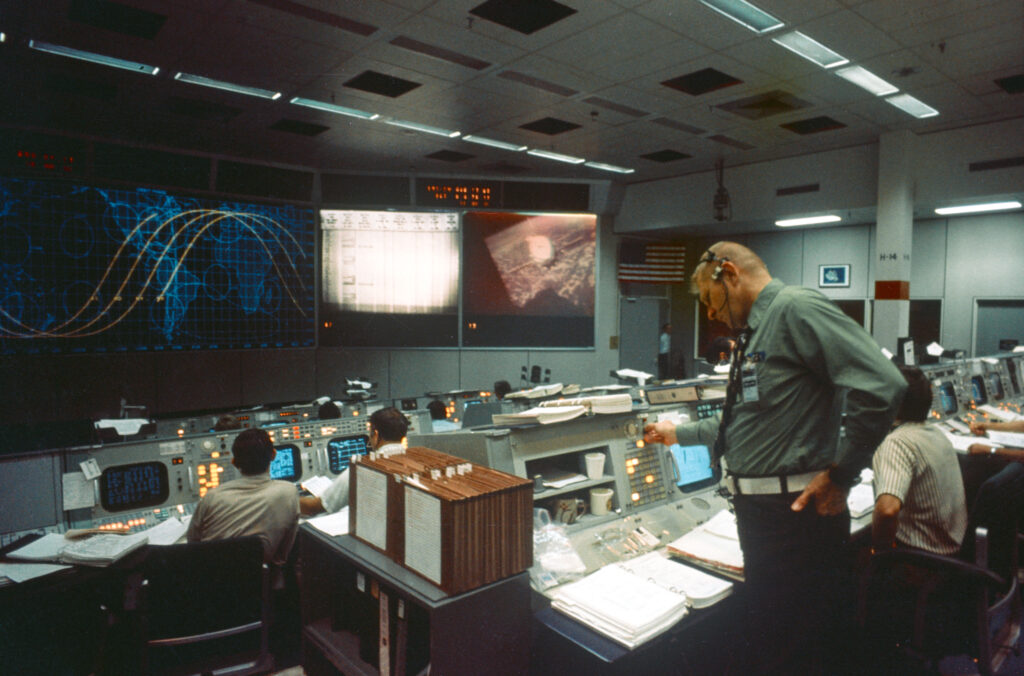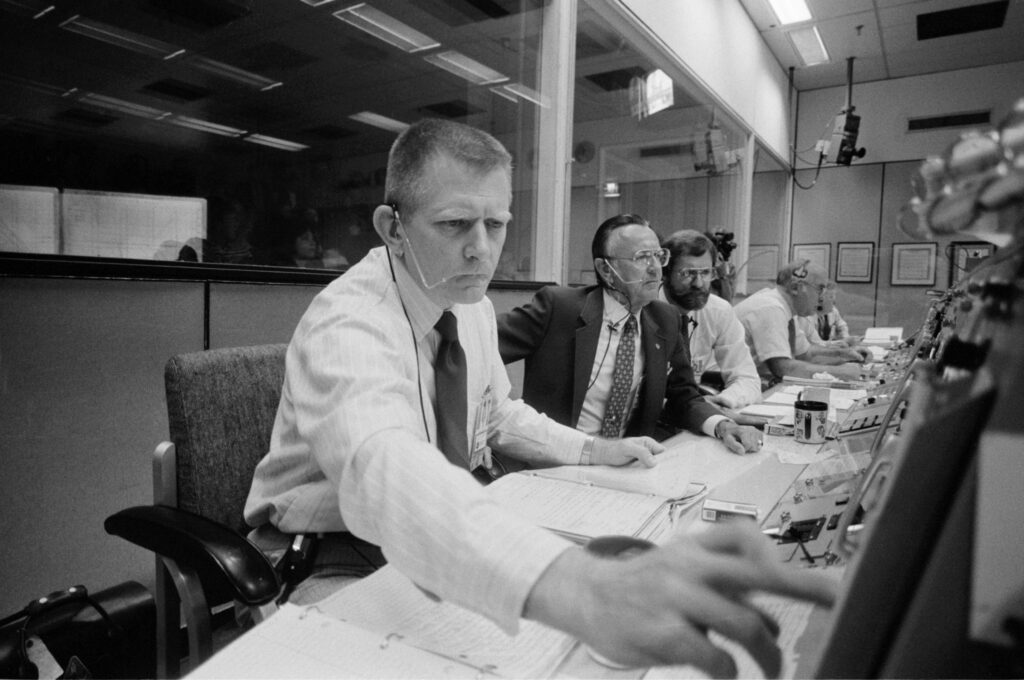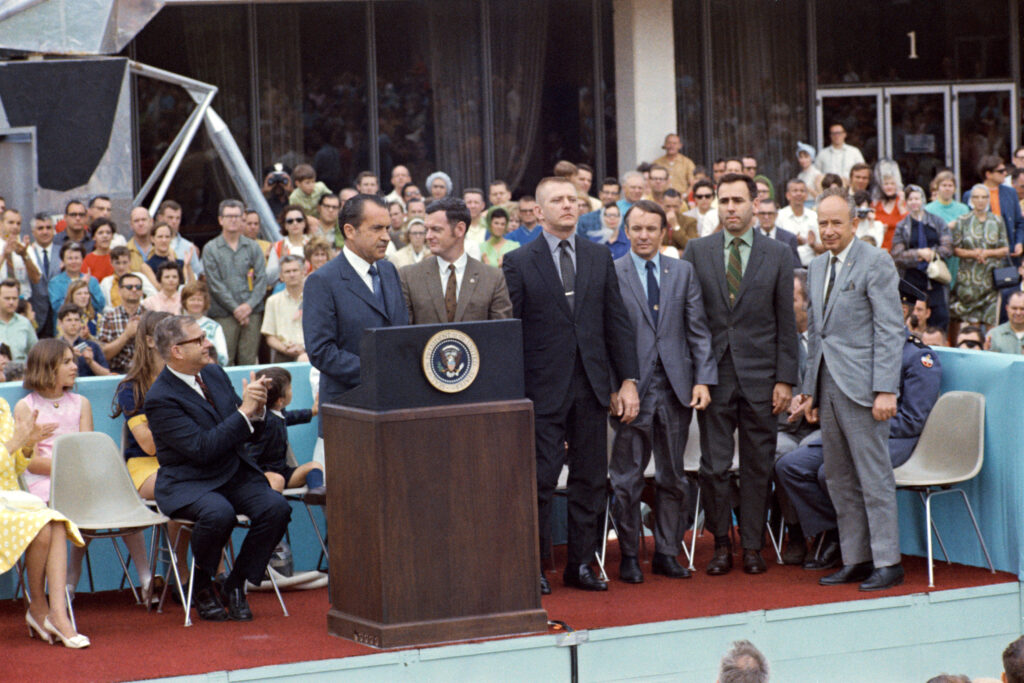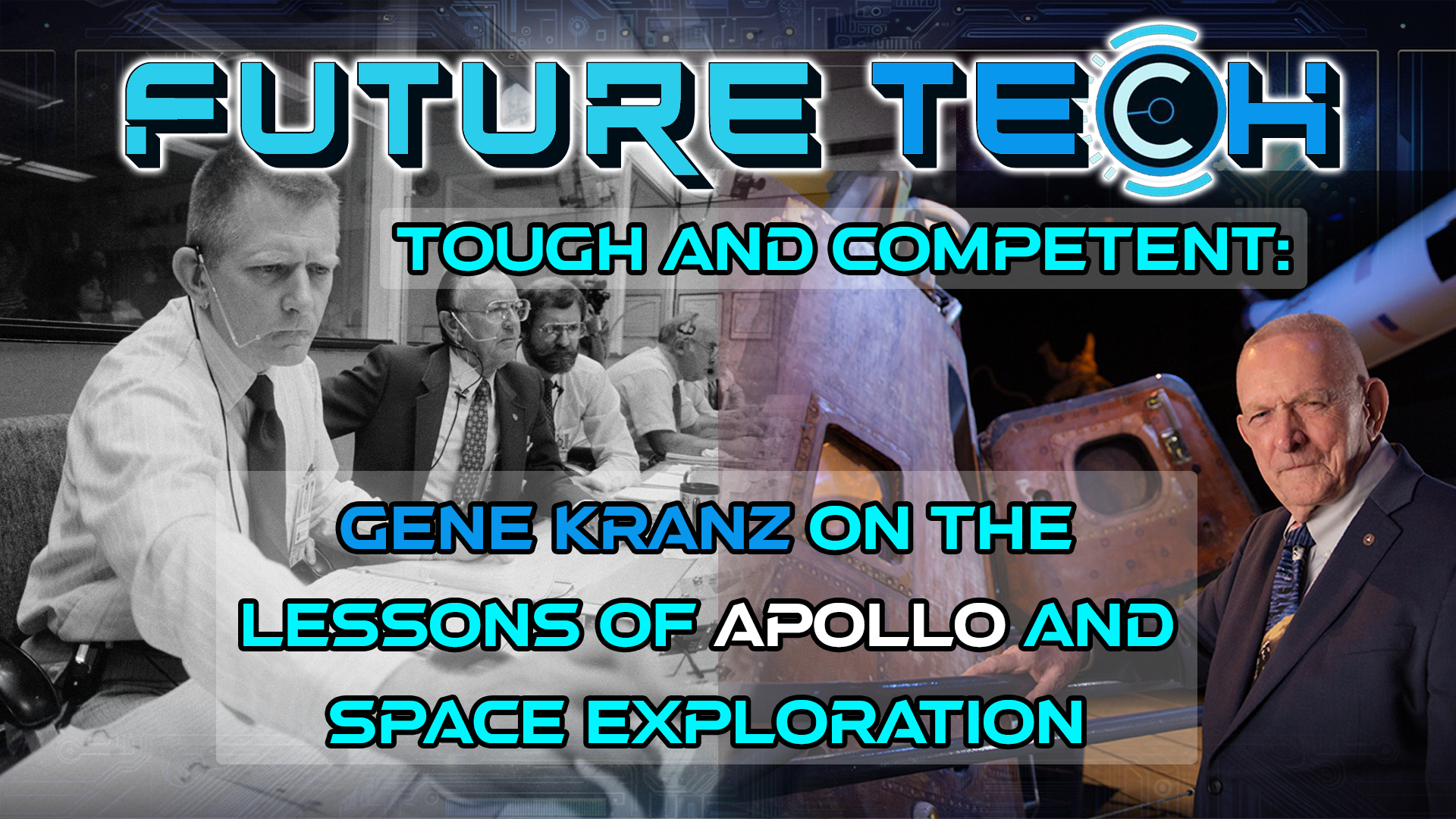When people think of the Apollo era, one name rises above the rest: Gene Kranz. As NASA’s legendary flight director, he guided America through its greatest triumphs and darkest hours—from Apollo 11’s first lunar landing to the near-disaster of Apollo 13. Recently, I had the honor of sitting down with Kranz, and what he shared was more than history—it was a masterclass in leadership, risk, and the resilience that defined a generation.
Kranz’s path to Mission Control began long before spaceflight. As a military aviator and test engineer, he had already lived in high-risk environments. “Basically, I had a built-in association with the astronauts,” Kranz recalled. “We never put anything in the bomb bay of the B-52 unless we had a hand-drawn schematic of how it worked. That culture of preparation became the backbone of Mission Control.”

S75-28682 (17 July 1975)
Defining the Flight Director’s Role
NASA was still inventing itself in the Mercury years. Kranz remembered the moment when the role of flight director crystallized during John Glenn’s orbital mission: “The entire management team was debating what to do. That was the genesis of the flight director’s role—one person accountable for crew safety and mission success.”
From then on, the phrase “Flight Director” became synonymous with Kranz himself. His task wasn’t just about making calls under pressure, but about building a culture that could sustain the unknown. “My job was to build the team, establish the data, and basically establish the functions of the training organization,” he said. “We had to be ready for missions far more complex than Mercury.”
Apollo’s Ultimate Test
That preparation paid off during the Apollo program, when simulations became so real that controllers argued with instructors about whether problems “could really happen.” Kranz laughed: “The instructor would simply say, ‘But it just did. What are you going to do about it?’”
On Apollo 13, that mindset saved lives. With a crippled spacecraft drifting toward the Moon, Kranz rejected the fastest route home. “A good portion of my team wanted to get home the fastest way possible… I said, no. We want time to identify the problem and develop the capabilities we need. Our job is to get them home. That was tough.”

NASA ID: S82-32883
Tough and Competent
After the Apollo 1 fire, Kranz delivered his famous words: “From now on, Mission Control will be tough and competent.” To him, those were more than words. “It was a rallying cry. Tough means you stand up and make a decision when you must. Competent means you never take anything for granted. That was the price of admission to the team.”
He carried that ethos into his later years, restoring Mission Control and mentoring younger generations. His latest book, Tough and Competent, reflects on how those values remain urgent today.
Looking Ahead: Artemis and Beyond
When asked about Artemis and the return to deep space, Kranz was frank: “Going back to deep space is important—whether it’s the Moon or Mars. Any time you move into a high-risk environment, you grow the knowledge, the technology, and the belief that we can tackle the toughest challenges. That’s what it means to be American.”
But he warned that today’s missions face unique hurdles: more players, longer delays between flights, and the challenge of keeping teams sharp over years. “Integration is going to be tough,” he said. “But the spirit is the same—we must remain tough and competent.”

NASA ID: S70-35600
Why This Matters for Before The Moon
Kranz’s reflections resonate deeply with the story we’re telling in Before The Moon. Long before Houston, before Kennedy Space Center, the seeds of Apollo’s success were planted in Warminster, Pennsylvania—at places like the Johnsville Centrifuge, where astronauts trained to endure the forces of space. Kranz himself underscored the importance of that research: “The foundation physically was very important. The crew had to respond in time-critical situations under G-load. Without that preparation, success would have been impossible.”
Preserving these stories isn’t nostalgia—it’s necessity. As Kranz told me, “History is living. It continues through us. The Apollo story must be told to inspire the next generation.”
And that’s exactly what Before The Moon is here to do.
Listen to the Podcast episode here:
Or Watch the Video here:


Leave a Reply